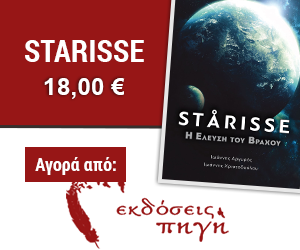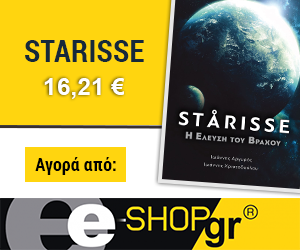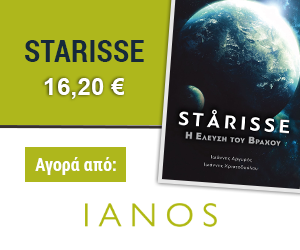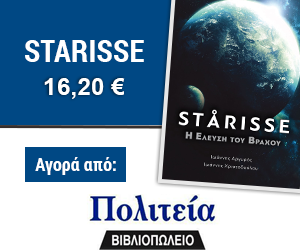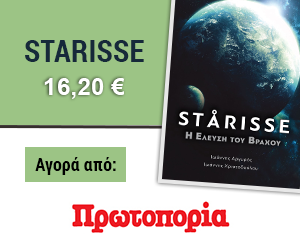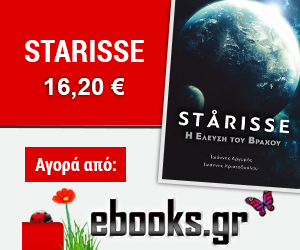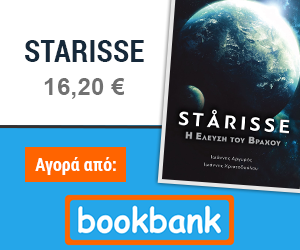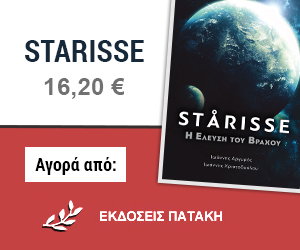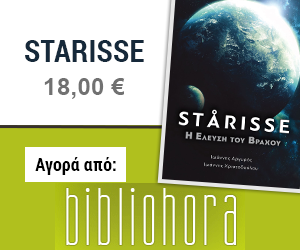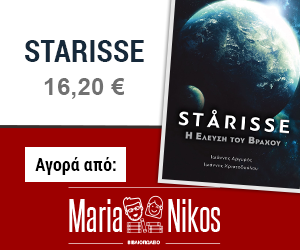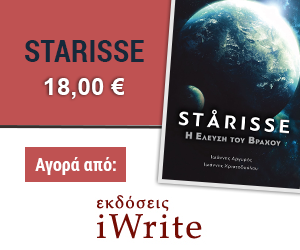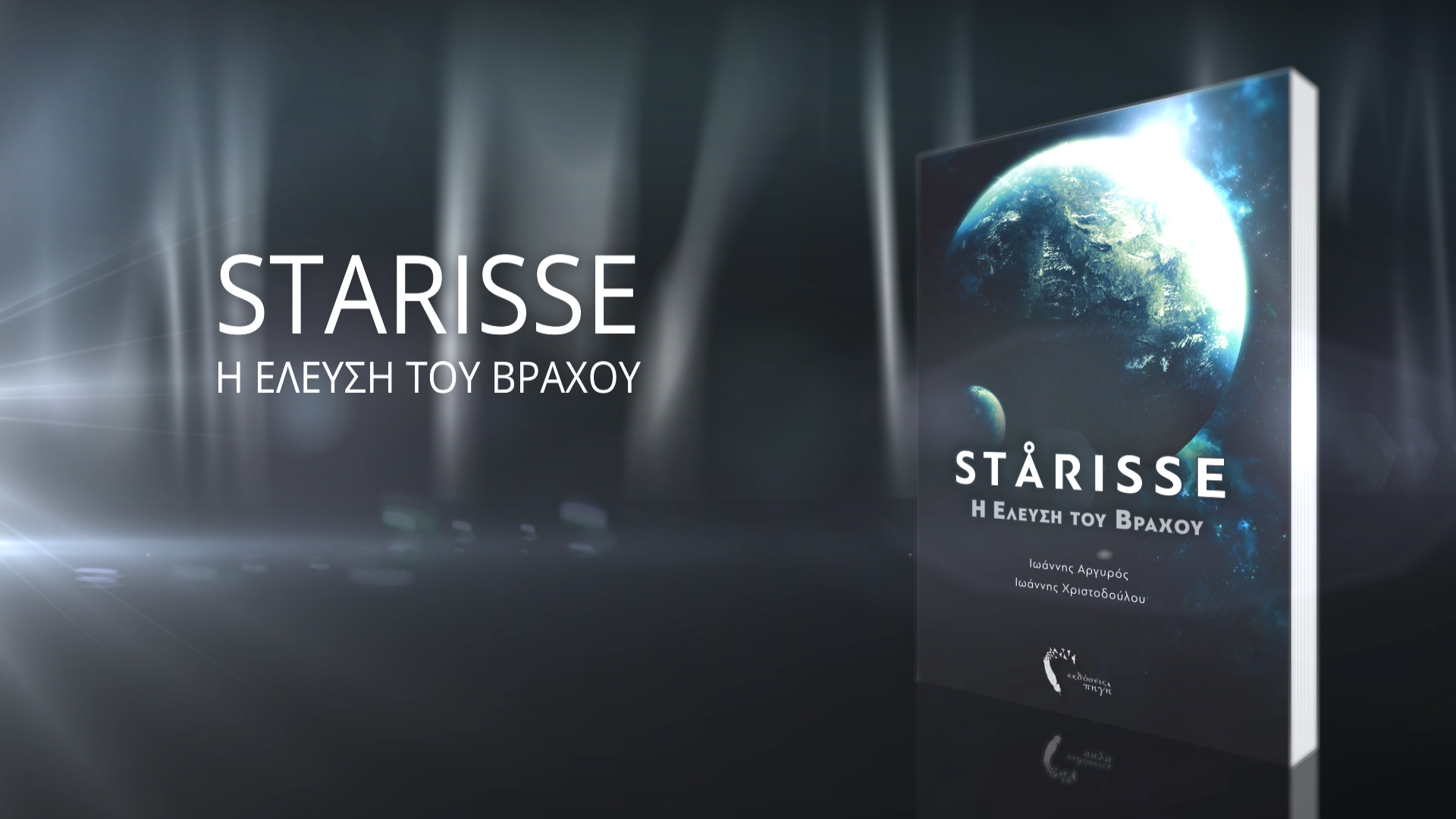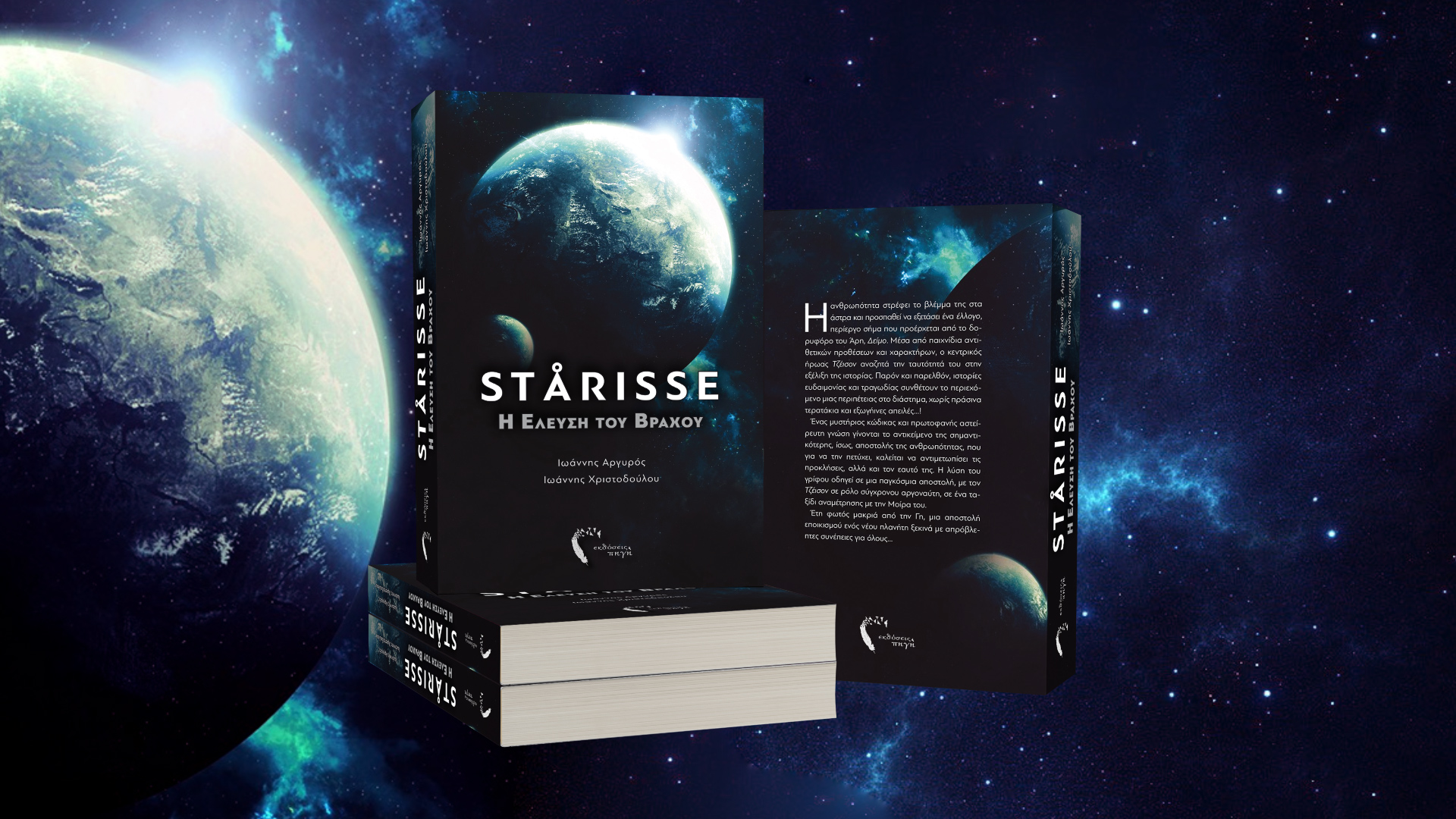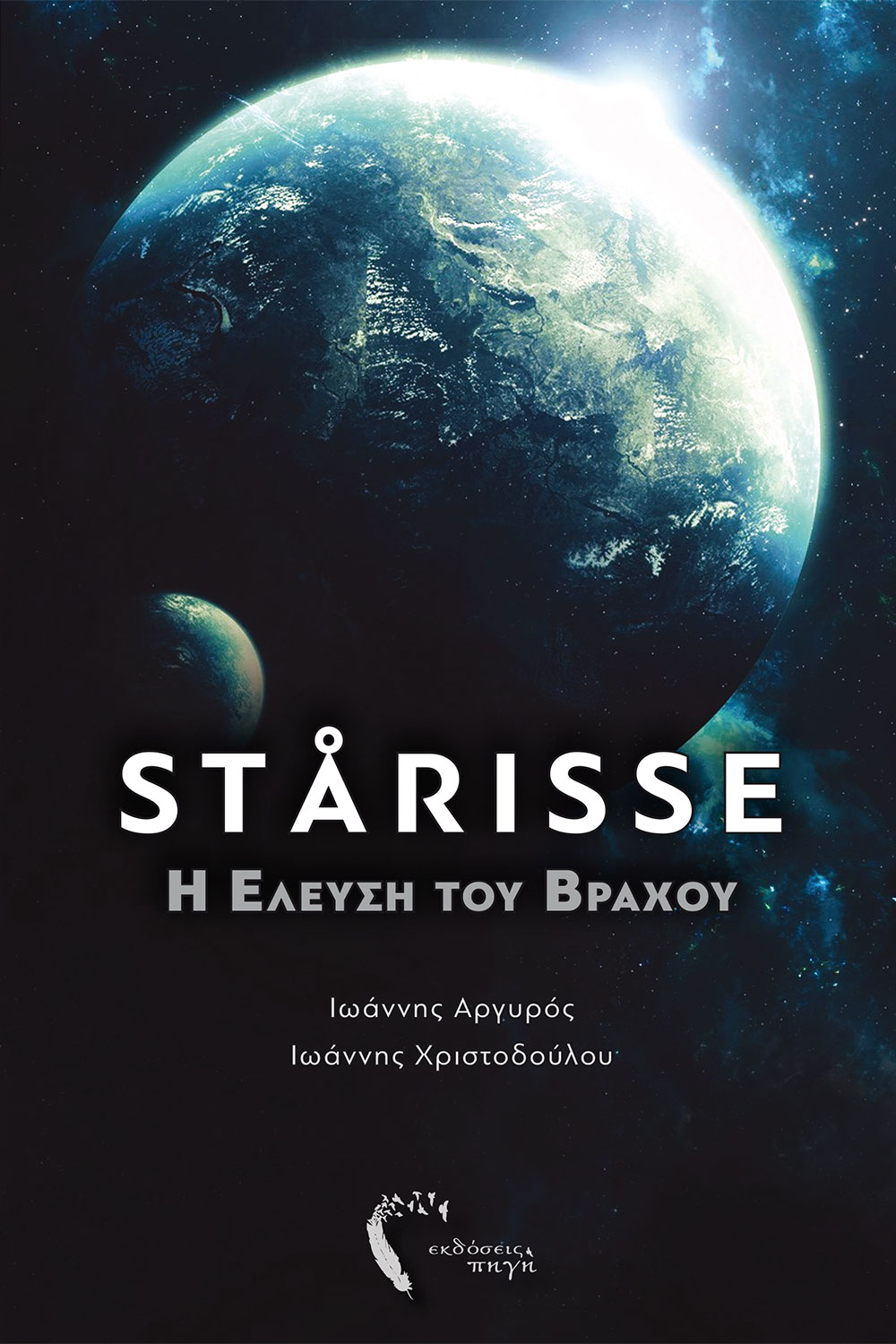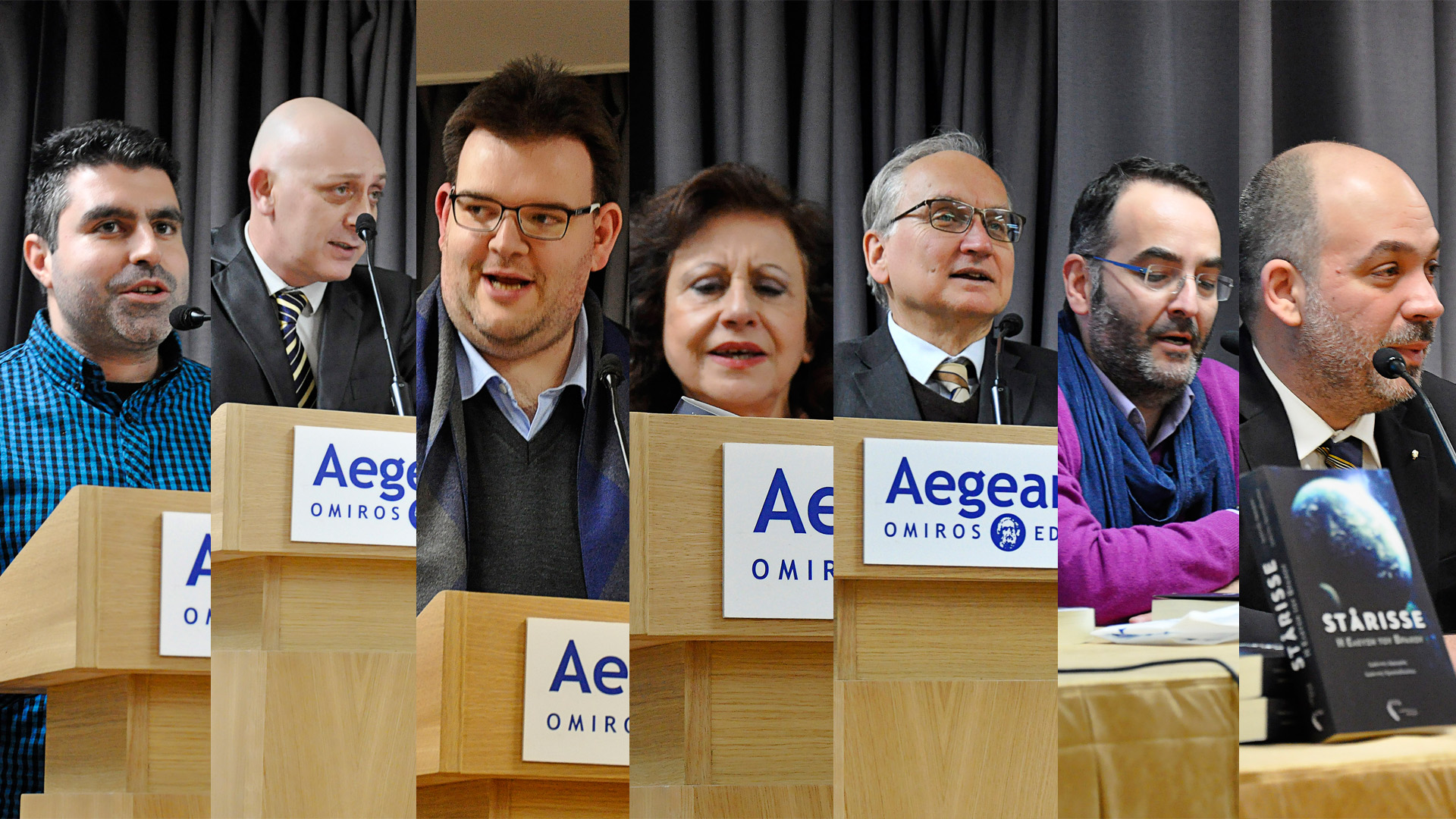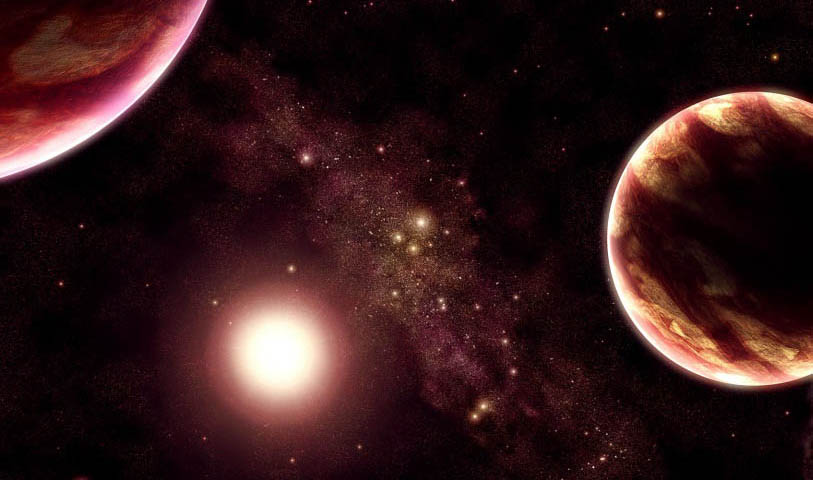STARISSE – “The Advent of The Rock” is a science fiction novel about the past and the future. A story about love and hate, joy and tragedy, but above all, a story about hope for future of man kind.
STARISSE: The Advent of the Rock is a novel, whose content is placed in the imminent future. Hidden messages, philosophical implications and a vision pertaining to the evolution of humanity underlie the plot; the novel raises concerns about the history of human culture and its roots by means of mythological imagery, especially the ancient Greek one!
Its excellent and imaginative plot is maximized both by space/ time, where the facts and events occur, and by the surprising unexpectedness of those events and heroes. It is for this reason that we feel that it could be also an excellent scenario for the big screen or television.
It could be suggested that the novel, although classified as science fiction, is more “science” than pure fiction. There are allusions to space travel, concepts of time, Greek mythology, space structure, etc. the novel, whose plot is layered on a multilevel structure, is directed at both the common reader, who will pleasantly spend his time reading a fascinating story, and the “hip” reader, who will search for codes and mysteries, through symbolism and allegory.
In regard to science the story outlines vision and inspiration for the future, whereas in literature, it defines a new genre, which intertwines art, text and science in a many-layered creative whole, involving all those elements that constitute a best seller: Exciting plot, mystery, romance, science, codes, allegory, flash-back, a visualized journey to fantasy, identification with the heroes and finally catharsis!
Starisse is not only a fascinating work of literature for fun. It resembles a manual of philosophical thought, furnishing the reader with an innovative view of Greek mythology and raises questions such as:
- What prospects are opening up for mankind, provided Science, Knowledge and Art are combined with the value system of the Greek thought?
- What are the consequences, for the scientific community, of the lack of a value system, while knowledge is sought? What is the problem and why does it end up exploiting human nature?
- What is Time and what is its scientific meaning?
- Supposing one is given the opportunity to participate in such a trip, what part would they take?
- What exactly do the names of heroes mean for us? Is Jason a random name or maybe something more than an Argonaut on a mission, a modern healer of our mental passions?
Prefaced by Maria Tzani
Beginning reading the novel “Starisse – The Advent of The Rock” I was definitely not even prepared for so many twists, symbolism and reading levels. The idea of the two authors is excellent. Using as starting point a science fiction story and mixing straws of true history, philosophy, even more the nature of the Greek light itself and the sense of cosmic consciousness in a literary wholeness with scientific elements, I participated on a magical journey to the stars, both in the past, as in the future. The plot kept my interest undiminished, to the point, I could not leave the reading to continue it at a later point. The trip destination? The exultation of the soul, with anthem an optimistic message about the human figure and effort that highlights the essence of what we all know within ourselves: when cognition blends and collaborates seamlessly with superior aesthetics, it produces beauty. The ancient beauty, who is also the way for our salvation!
Maria Tzani
Emeritus Professor, University of Athens,
Director of the Laboratory “Biophysical Environment : Neurosciences & Learning
From the official presentation of Starisse – “The Advent of the Rock”
The event took place on December 22, 2016, on the 7th floor of Aegean College, in Athens – Greece at 18:00
The book prefaced by the Professor Maria Tzani, and commented by the Professor Mr. Xenophon Moussas (Space Physics / NASA Specialist, Head of Reconstruction of Astrolabe Antithyron) and the Professor Mr.Theodoros Mertzimekis (Department of Nuclear Physics – University of Athens).
Photo Gallery
The star HD 108874
that is mentioned in our history “STARISSE” is a yellow dwarf star with spectral type G5 V, in the constellation of Coma Berenices, It is 200 light years from Earth[1] and has two extrasolar planets that are possibly in a 4:1 orbital resonance. HD 108874 is 2.7 billion years older than our Sun. The star has a temperature of 5407 K and luminosity 1.14 solar. Its metallicity is 1.38 times solar, meaning it has greater iron abundance relative to hydrogen and helium. It has about the same mass as the Sun, but the radius is 22% greater. WIKIPEDIA
Officially confirmed a stellar cluster with the name “STARISSE”
The writing team has officially confirmed a stellar cluster with the name “STARISSE”, located in the constellation of Perseus, and has registered it (with a numeric designation certificate: ISD0036738) as Messier 34 on the Intergalactic database. The swarm that has distance 1500 light-years away from Earth and can be seen in a dark sky with binoculars when the light pollution is limited, just south of the (c) parallel (Andromeda). It has an average age of 200-250 million years old, the age at which a Sun enters into the main sequence phase. Compared to our Sun, has 17% more iron. MESSIER 34

